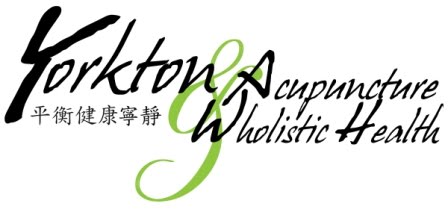Balance, Health & Tranquility
Finding a way to dissolve life’s stresses is crucial to staying healthy.
Yorkton Acupuncture and Wholistic Health offers chemical-free treatments and products for people wishing to improve and maintain good health!
Yorkton Acupuncture and Wholistic Health offers chemical-free treatments and products for people wishing to improve and maintain good health!
Acupuncture
What is Acupuncture? The practice of acupuncture is based on principles of Tradition Chinese Medical theory, which has a 5,000 year history of successfully diagnosing, treating and preventing illness. Acupuncture involves inserting sterile, disposable needles at specific points in specific patterns, and using these needles to stimulate the body’s natural ability to heal. No substance is injected into the body. If appropriate, acupuncture will be combined with Chinese herbology and other methods of Traditional Chinese Medicine.
How does Acupuncture work? We all have a complex system of channels which flow throughout our body distributing energy, or life force, to all of our tissues. Health problems arise when there is an obstruction in the flow of life force or an imbalance in the bipolar components of this flow. Acupuncture can increase circulation and decrease inflammation. Acupuncture restores the energetic balance in the body and stimulates the healing process.
What can acupuncture be used to treat? The World Health Organization includes the following in their list of conditions for which they endorse acupuncture treatment:
-colds and flu, sore throat, hay fever
-hepatitis, herpes
-hypoglycaemia, diabetes
-asthma, bronchitis, sinus infection
-stomach ulcers, colitis, indigestion, hemorrhoids, diarrhea, constipation, heartburn, acid reflux
-deafness, tinnitus, earaches
-dizziness
-eczema, acne, psoriasis
-arthritis, neuralgia, sciatica, back pain, bursitis, tendonitis, stiff neck, headache, migraines
-Bell’s palsy, trigeminal neuralgia, cerebral palsy, polio
-stroke and post-stroke paralysis, high blood pressure
-sprains, strains
-infertility, pelvic inflammatory disease, vaginitis, morning sickness, urinary and menstrual disorders, menopause
-anxiety, stress, insomnia, depression.
Acupuncture has also been shown to be helpful for:
-addictions cessation
-withdrawal from nicotine and alcohol
-recreational drugs
-post-surgical recovery
- TMJ
- Irritable Bowel Syndrome
- Multiple Sclerosis
-side-effects of chemotherapy and radiation
-chronic fatigue, weight loss
-the signs of aging
-under functioning of the immune system
Has any research been done on Acupuncture? Empirical studies have been done throughout the history of Traditional Chinese Medicine, and practitioners routinely compared notes, consolidated their results and published their findings. Since the formation of the People’s Republic of China in 1949, many studies have been conducted on the efficacy of Traditional Chinese Medicine in light of modern Western medical study methodologies. Hundreds of papers reporting experiments and clinical trials have been published and, on that solid foundation, Traditional Chinese and modern Western medicine were accorded equal status in China. Today, hospitals in China (and in Japan and Taiwan) are integrated, i.e., fully trained practitioners in Traditional Chinese Medicine work together with those trained in modern Western medicine, in the best interests of the patient. Research continues on the efficacy of acupuncture and Chinese herbology in treating modern diseases. By using a system approach to health care, early Oriental practitioners discovered acupuncture points. They found that upon stimulating these points a cascade of positive changes occur in the body. Computer imaging of the brain during an acupuncture treatment shows dynamic activity occurring in many regions and structures within the brain. This modern research has shown that stimulating an acupuncture point causes an increase in the production of endorphins and simultaneously activates the immune and endocrine system.
Does Acupuncture hurt? A Patient can expect to feel, at most, a mosquito-bite sensation as the needle is inserted. As the practitioner manipulates the acupuncture needle to stimulate the body’s healing energies, sensation, warmth, cooling, distending or a heavy feeling. These are all considered good feelings, reflecting the efficacy of the treatment. Most people find the treatments relaxing, with minimal discomfort.
Are there any side effects? Acupuncture is very safe and there are virtually no adverse effects or complications when practiced by a competent Registered Acupuncturist. Needles used for acupuncture are fine, sterile, one-time use disposable stainless steel instruments. Patients with pacemakers or epilepsy should avoid electrical stimulation with acupuncture (electroacupuncture) and women in early pregnancy and haemophiliacs are treated with caution.
Subscribe to:
Comments (Atom)

